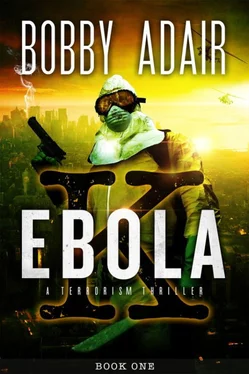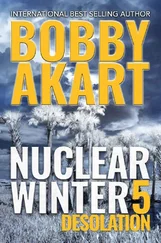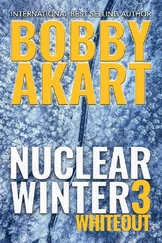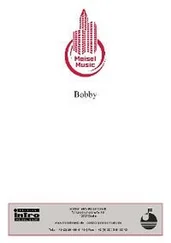One hundred and eighty miles from Kampala to Kapchorwa. Getting there had grown into a fiasco of wait-a-few-minutes that turned into hour-long delays that eventually burned off the whole morning. It was too late in the evening after Mitch got off the call with his boss to head out the night before. Everyone agreed on that. But the group of doctors heading to the villages north of Mbale—into ground zero of the Ebola rumors—wouldn’t go without an armed escort. Apparently two attempts by the WHO to head up the road to those villages left a single doctor unaccounted for, and another group of doctors and aid workers, as well.
Everyone anticipated trouble up that way, though nobody knew how that trouble would manifest itself.
Dripping with sweat in the sun, Mitch stood impatient and bored, glaring at the doctors. Three of them were standing in front of their vehicle that was parked behind his in a makeshift caravan. Another truck, right behind theirs, carried more people along with boxes of medical gear.
One of the doctors kept talking about machete-wielding bandits he’d encountered during a stint in Rwanda. He was certain the road north of Mbale held an ambush of just such men. One of the doctors seemed to think the best way to assuage the other doctors’ fears was to talk about how, during the 1976 Ebola outbreak in Zaire, the area around the Ebola river—for which the nasty little Filovirus was named—had turned into a veritable black hole. No word, no communication of any kind came out.
Mitch didn’t care if it was the Bermuda Triangle. He had a compact Glock in a holster on his belt, thoroughly hidden by his baggy shirt. The man in the back seat—a guy he’d used for security on more than one occasion—had an AK-47 standing on the floorboard beside him. Two more AK-47s were covered under a blanket on the other side—one for Mitch and one for the driver, who was also experienced at using it. Both carried concealed handguns. Mitch preferred to work with experienced, prepared men.
He also preferred to get things done. So whether their escort from the Uganda People’s Defence Force—the army—showed up or not, he was leaving at noon. The sound of a big diesel engine caught his attention and he looked down the street. As the dust cleared, a squad of Ugandan soldiers in a big flatbed truck appeared, only a day late.
Driving through Kampala near noon left them in more traffic than Mitch had wanted to deal with. At least with the vehicle moving and the windows down, the breeze blowing in felt nearly as cool as if the air conditioner was running. With the elevation, the summer in Kampala wasn’t as hot as he’d imagined it would be before he arrived nearly a year ago.
They passed modern buildings and houses, as well as less affluent areas of town, and slums. The highway passed Mandela National Stadium as they were leaving Kampala and stretched into the smaller outlying towns. It occurred to Mitch how much the country reminded him of the rural parts of the Deep South—Alabama or Mississippi, maybe—where he could drive past a brightly colored eight-pump gas station one moment, and in the next, past farm shacks covered in flaking paint with rusting metal you-name-its in the front yard. Where chickens ran loose among barefoot kids who looked like they couldn’t care less when their next bath time arrived, and weeds as tall as the kids grew wherever their feet didn’t beat them down to bare dirt.
Eventually, the houses and businesses thinned out to farming country, and they drove past tea and cane fields stretched over the plains and up the distant hills—lush greenery growing in yellowish-red dirt. The countryside took on a sameness as they sped along a paved four-lane highway. Houses, farms, trees, hills… repeat.
A few hours into the drive, they stopped at a roadside market. Stacks of crates and tables filled with all manner of fruits and vegetables were displayed under the shade of sheets of painted tin held up on wooden frames. Several farmers’ wives ran the little market and collected money from the soldiers and doctors as they meandered through and picked out a few things to eat.
At first Mitch worried about Ebola in the fruit, but his knowledge of how the disease spread was woefully thin. In the end, peer pressure and hunger pushed him to buy a few mangos for the long ride.
After several hours on the road, they reached Mbale. The army truck with its load of bored soldiers worked its way through the slowly moving traffic, with the other vehicles behind. It wasn’t until well after four o’clock that the caravan drove north out of Mbale and toward the little collections of farmhouses on the road to Kapchorwa.
Twice along the road, the doctors brought the convoy to a halt at certain clumps of houses and huts so they could get out and talk to residents about their health. When they got out at each stop, the medical workers would put on surgical masks and gloves. Mitch thought it wise to do the same. Those stops dragged on past the point of boredom. Mitch wandered among the houses and bushes, observing the people and looking for anything out of the ordinary. It was clear early on that not one of the farmers was going to admit to anything. Mitch spied several at the first stop taking off across a cornfield. They didn’t want anything to do with soldiers or doctors.
Some farmers stood far back inside their houses and talked from there. Others who talked to the doctors outside their huts kept a distance from them and denied that anyone they knew or were related to was sick. Talk of Ebola was everywhere, but the disease itself was always a rumor away in the next tiny village up the road or around the bend.
They found no direct evidence of the disease. But at each stop, Mitch grew more and more certain that it was lurking nearby. He was careful to avoid touching anything or anyone. He didn’t drink water at any place they stopped. Although he was growing hungry with the dinner hour upon them, he made no more purchases from roadside markets.
They passed the military roadblock, and what they learned from the men there was no different than anything else they’d heard or seen on their trip: rumors and worry.
With the army roadblock twenty or thirty minutes behind them, it was starting to get dark. Mt. Elgon’s peak and higher elevations glowed orange and red in the light of the setting sun. Male cicadas started their distinctive nighttime song, and nocturnal birds added their calls.
Mitch was staring at the colors slowly changing on the mountainside, not paying any attention to what was going on around him, when the driver slowed the vehicle in response to the squeaking brakes of the military truck up ahead. The road was dirt by then—they’d been off pavement since a few miles out of Mbale—and a cloud of red grit surrounded them.
Mitch coughed and blinked the dust away as he disembarked from the truck, not really curious about why they stopped. It was more out of boredom as he looked for something to do.
The doctors in the vehicle ahead—they were all doctors to Mitch—were all out by then, with a few walking forward, perhaps to relieve their own boredom. Mitch passed by one of the doctors standing by the vehicle, “What’s up?”
“Don’t know.” The guy answered. “I was asleep.”
The road dust was settling, more than a little of it in Mitch’s hair and on his clothes. He walked up to two doctors at the rear of the army truck—one man, one woman—who were looking at a few felled trees blocking the road ahead. The soldiers were standing by the trees, looking around, gesturing, and assessing the situation. They knew they’d be tasked with clearing the road and were talking it through.
“We’re here,” the female doctor said.
The man—soft, young, pale-skinned, and maybe not even old enough to be a doctor—asked the woman in a high school kid’s voice, “Why do you say that?”
Читать дальше












